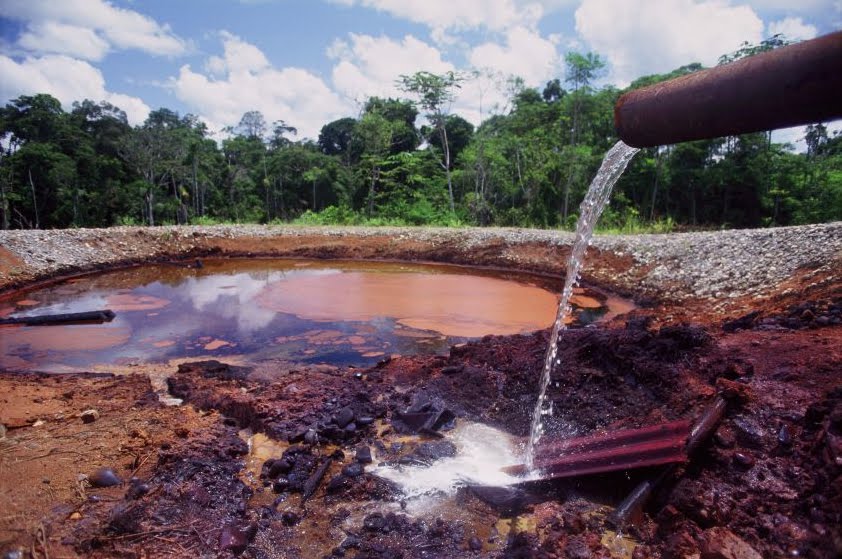
New Amazon Oil Threat
On the same day that Peru declares a State of Emergency over oil pollution in the Amazon, the Ecuadorians offer 3 million hectares of pristine forest to the Chinese to explore for oil.
If we are serious about weaning ourselves off our addiction to fossil fuels, then the most obvious place to start is where its ecological and cultural impact is greatest: the Arctic, the tar sands and the Amazon.
The battle for oil in the Amazon has often been overlooked recently due to the fight to keep oil companies out of the Arctic. But the threat remains and is set to get much worse.
What makes this all the more horrific is that we know the true ecological and cultural impact oil has on the region.
It is over twenty years since Judith Kimerling’s ground-breaking booklet Amazon Crude was published into the devastation of oil in Ecuador by Texaco. If you have never read Joe Kane’s stunning book Savages on the shocking cultural impact of Amazonian oil, you should add it to your reading list.
The year after Kane’s book was published, Atossa Soltana, a veteran of working on deforestation at Rain Forest Action Network, set up Amazon Watch. For years Amazon Watch has fought tirelessly for the rights of Indigenous groups in the Amazon. Much of this fight has been about oil.
They have led the international fight to make Texaco, which was taken over by Chevron in 2001, to clean up its toxic mess in the region.
Amazon Watch points out that Texaco “deliberately dumped billions of gallons of toxic wastewater into rivers and streams, spilled millions of gallons of crude oil, and abandoned hazardous waste in hundreds of unlined open-air pits littered throughout the region. The result is widespread devastation of the rainforest ecosystem and local indigenous communities, and one of the worst environmental disasters in history.”
Earlier this year, Chevron lost its appeal for the oil major to pay a record $19 billion in damages for environmental pollution in the region, after a long-running and bitter lawsuit.
The latest warning about oil’s lethal legacy has come from neighbouring Peru. On Monday, the country’s government declared an environmental state of emergency in a remote region of the rainforest near the Ecuadorian border, inhabited by the Quichua and Ashuar indigenous groups
For years the indigenous communities have been complaining about the oil pollution. The Associated Press reports that “In declaring the emergency, Peru’s Environment Ministry said the contamination included high levels of lead, barium and chromium as well as petroleum-related compounds.”
The oil fields had been operated for a dozen years by Pluspetrol, the country’s biggest oil and natural gas producer, which took over the fields from Occidental Petroleum. The 90-day emergency orders follows a $11 million fine levied against Pluspetrol in January.
The president of the Quichua Federation of Pastaza, Sixto Shapiama, hailed the emergency as “a great achievement because for many years, decades, the government never wanted to see the reality.” He told Associated Press that for decades they had been “constant spills”, adding that “the sediment at the bottom of the river is completely contaminated.”
But in timing that is beyond ironic, the very same day that Peru issued its state of emergency, Ecuadorian officials were in the Hilton in Beijing offering over three million hectares of pristine Amazonian rainforest to Chinese oil companies, including China Petrochemical and China National Offshore Oil.
“Ecuador is willing to establish a relationship of mutual benefit – a win-win relationship,” Ecuador’s Ambassador to China said in his opening remarks.
We know nothing could be further from the truth. Amazon Watch has pointed out that: “In addition to violating international law and the Ecuadorian Constitution, Chinese participation in the round would directly violate China’s new guidelines for Environmental Protection in Foreign Investment”
Seven nationalities from the region – the Shuar, Achuar, Kichwa, Shiwiar, Andoa, Waorani and Sápara – have issued a declaration denouncing the bidding round saying it would devastate their home and cultural heritage.
“The Chinese government is courting disaster with this round,” said Adam Zuckerman from Amazon Watch. “These blocks are the most controversial in Ecuador and there’s already a list of companies who have tried to drill there and have failed. Drilling in some of the most pristine regions of the Amazon would not only violate the rights of local communities, it would break China’s own laws.”
Albert Einstein once said that the definition of insanity is doing the same thing over and over again and expecting different results. If we allow this culturally and ecologically fragile region of the Amazon to be drilled for oil, we know what will happen. History has already taught us that. The question is will we allow history to repeat itself?

